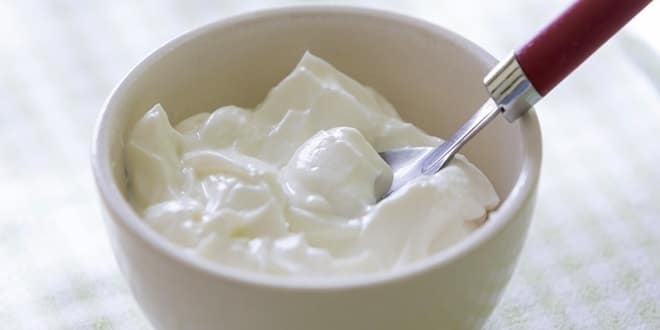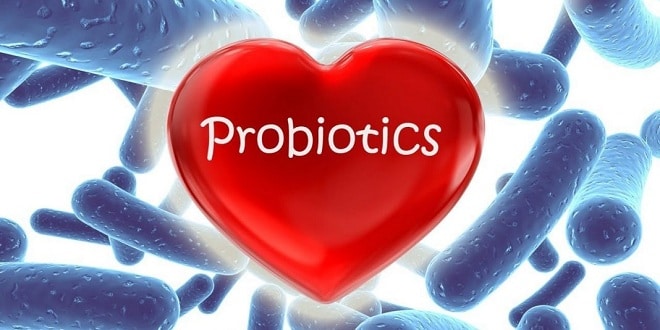Probiotics, Prebiotics and Synbiotics ( Dr. Louay Labban )
Definition
• We usually think of bacteria as something that causes diseases. But the body is full of bacteria, both good and bad. Probiotics are often called “good” or “helpful” bacteria because they help keep your gut healthy.
• Probiotics are live bacteria and yeasts that are good for and have beneficial effects on the host by improving its intestinal microbial balance.
HISTORY
• At the start of the 20th century, Russian noble prize winner and father of modern immunology, Elie Metchnikoff, a scientist at the Pasteur institute, was the first conceptualize “probiotics”.
Elie Metchnikoff
• In 1907 Metchniokoff proposed that the acid producing bacteria in fermented milk products could prevent “fouling” in the large intestine and if consumed regularly, lead to a longer, healthier life
Initial Intentional Probiotic Use
• Eli Metchnikoff observed
– Bulgarians who drank milk fermented by lactic-acid producing bacteria had long lives
– Lactic acid lowers gut pH and inhibits the growth of some pathogenic bacteria.
• Metchnikoff began drinking fermented milk and soon Parisian physicians did likewise.
• Henry Tissier at Pasteur Institute identified bacteria common in breastfed infant stool:
Bifidobacter
• Lactobacillus acidophilus breaks down lactose and allows lactose intolerant individuals to drink milk
• In early 1930’s, in Japan, Minoru shirota developed a fermented milk product called Yakult (probiotic yogurt like product made by fermenting a mixture of skimmed milk with a special strain of Lactobacillus casei shirota).
• Probiotic term coined in 1965 by Lilly and Stillwell.
Newborn Microbiota
Initially depends on
• Mother’s microbiota maternal vaginal and intestinal flora constitutes the source of bacteria, which colonizes the intestine of new born.
• Mode of deliver
• Birth environment
• Rarely genetic factors
• After infantry probiotics supplied from raw foods; such as lactic acid fermented foods such as yogurt, cheese and probiotic supplements.
Factors affecting the intestinal micro ecosystem
• Antibiotics and other drug intake
• Microbial infections
• Diet (highly processed, low fiber foods)
• Chronic diarrhea
• Stress
• Chlorinated water
• Radiation and chemotherapy
• Colonic therapies for detoxification
Characteristics of Effective Probiotics
• Able to survive the passage through the digestive system.
• Able to attach to the intestinal epithelia and colonize.
• Able to maintain good viability.
• Able to utilize the nutrients and substrates in a normal diet.
• non pathogenic and non toxic.
• Capable of exerting a beneficial effect on the host.
• Stability of desired characteristics during processing, storage and transportation.
• Anti-inflammatory, antimutagenic, immunostimulatory.
Benefits of probiotics
Advantages
• Produce lactic acid- lowers the pH of intestines and inhibiting bacterial villains such as Clostridium, Salmonella, Shigella, E. coli.
• Decreases the production of a variety of toxic or carcinogenic metabolites.
• Aid absorption of minerals, especially calcium, due to increased intestinal acidity.
• Production of β- D- galactosidase enzymes that break down lactose.
• Produce a wide range of antimicrobial substances -acidophilin and bacteriocin etc. help to control pathogenic bacteria .
• Produce vitamins ( Vitamin B and vitamin K)
• Act as barriers to prevent harmful bacteria from colonizing the intestines
• Colon cancer – Certain probiotics (Lactobacillus bulcaricus) may help prevent colon cancer by preventing the
• Breakdown of enzymes (β- glucuronidase) that contribute to the growth of cancer causing agents.
• Lowering cholesterol : break down bile in the gut, thus inhibiting its reabsorption (which enters the blood as cholesterol)
• Blood pressure reduction – Consumption of milk fermented may result in modest reductions in blood pressure, due to the ACE inhibition-like peptides produced during fermentation.
…




